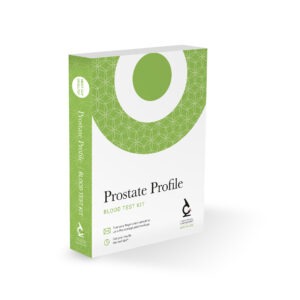Description
Genetic risk test associated with prostate cancer
This test analyses 19 genes that are associated with increased hereditary risk of developing prostate cancer. It is designed to identify early detection and help guide the right treatment pathway, reduce the risk of reoccurrence and increase the chances of survival.
It is suitable for men who have been diagnosed with inherited germline mutations associated with prostate cancer, or where a hereditary gene mutation has been identified within the family.
Why choose the Invitae Prostate Cancer Panel?
Make vital and informed decisions about the most effective treatment and/or surgery to prevent progression or recurrence.
Identify inherited mutations to ensure that immediate family members are screened from an early age.
Identify pathogenic mutations to prevent progression or recurrence.





